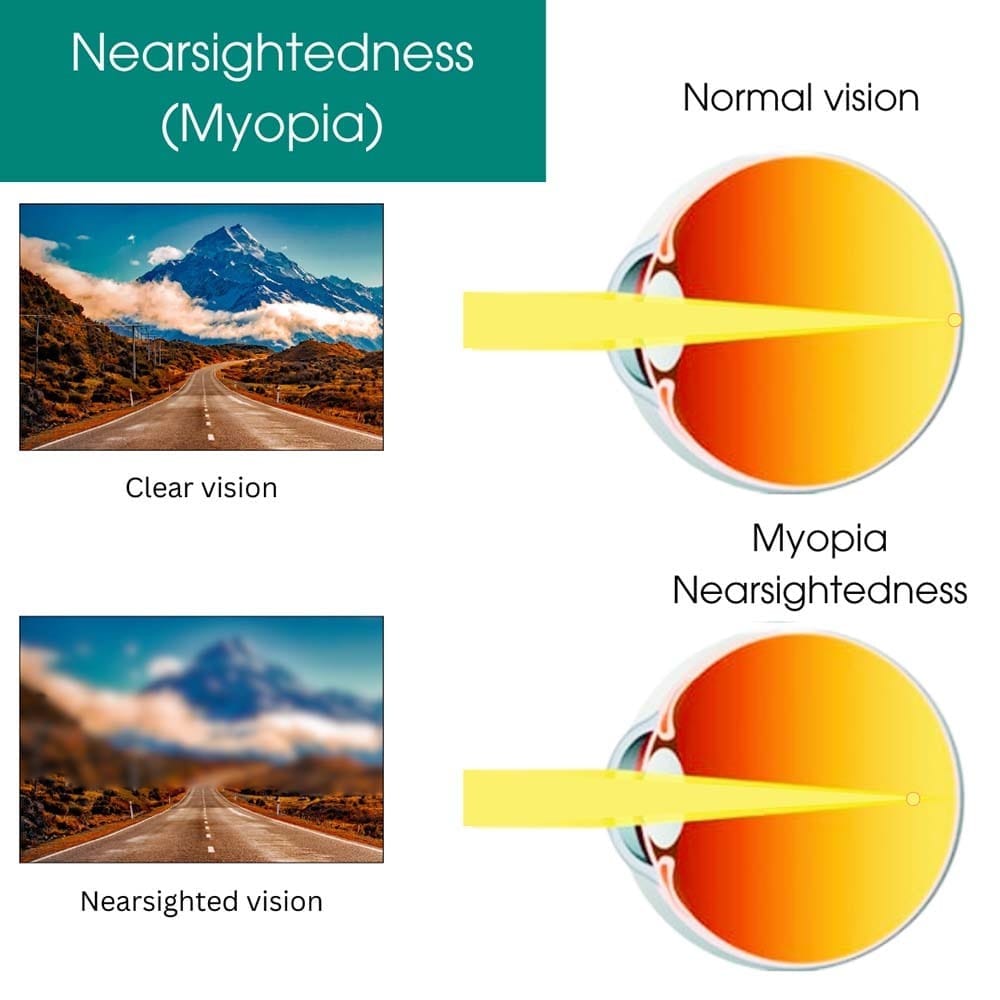Nearsightedness, technically called myopia, occurs when you can see things up close, but your visions is blurry from a distance. It’s like having a camera that works fine for close objects but struggles with those in the distance. This occurs when light enters the eye and focuses in front of the retina rather than directly on it, making distant things appear fuzzy.
Nearsightedness usually starts in childhood and worsens during adolescence as the eye expands. There are several types of myopia and categorization is based on severity, age and other associated conditions.
The main types include:
Effective myopia management depends on finding the best myopia doctor. Only an experienced myopia specialist can differentiate which type you have and then design the treatment according to it. Rely on the best optometrists in New York City at Eye Physicians for myopia management in Downtown Manhattan.
In addition to providing myopia control in NYC, they also diagnose and treat a wide range of conditions, including:

If you or your child has been diagnosed with myopia, it is essential to begin treatment as early as possible. Our specialists offer advanced techniques and individualized approaches to slow the progression of myopia. If you are looking for myopia management specialist near you, contact us for quality treatment and care for your vision.
When looking for effective ways to manage your myopia and prevent it from worsening, choosing an expert in myopia management at every stage of care is essential.
Locate a myopia management specialist who not only provides treatments to protect your vision but also helps you plan for the future using advanced diagnostic tools and therapies to ensure the health and stability of your eyesight. Licensed specialists at Eye Physicians offer a wide variety of highly personalized and comprehensive services in myopia control and eye health consulting to reduce progression risks and improve visual outcomes. They are ready to help you whether you are beginning myopia management, exploring treatment options, or looking for ongoing care to maintain optimal eye health.
Myopia happens when the eyeball is too lengthy, or the cornea, which is the front part of the eye, is overly bent. Nearsightedness is one of the most common visual impairments worldwide, and the number of people with it has risen in recent years. Eye specialists predict this trend to continue in the next decades. More than 40 percent of people in the United States are nearsighted. And this number is growing, particularly among school-age children.
The severity and appearance of symptoms varies from person to person; however, myopia typically appears with signs and symptoms that include:
Children may or may not display all these symptoms, which is why you want to bring your children to a pediatric eye specialist at Eye Physicians familiar with how kids react to vision issues.
A few additional myopia signs to look out for in your kids include:
Without proper myopia management, nearsightedness can deteriorate eyesight and cause fatigue, headaches and eye strain. The likelihood of serious side effects such as glaucoma and retinal detachment, which can impair everyday functioning and possibly result in blindness, rises with progression. Managing myopia and avoiding long-term consequences require routine eye exams.
It helps your myopia doctor to know the causes of your nearsightedness to better understand and manage this condition.
Several factors can contribute to the development of myopia, including:
Diagnosing myopia involves thorough eye examinations. Visual acuity tests, which require the test taker to read letters from a chart, and refraction tests, which measure the eye’s capacity for focus, are commonly included in these examinations. To determine the extent of myopia and provide appropriate corrective lenses, your physician might use a retinoscope or autorefractor.
Myopia is usually treated with corrective lenses, either glasses or contact lenses, which improve vision and focus light directly onto the retina, increasing distance vision. The elongation of the eyeball, which results in light focusing in front of the retina rather than directly on it, is compensated for by these lenses.
Other treatment options include:
If you live in New York City, contact the devoted doctors at Eye Physicians for the best myopia management in addition to effective and comprehensive eye care for your whole family.
Eye Physicians
110 Lafayette St, Suite 503
New York, NY 10013
(212) 292-4814
Entrust the care of your precious eyesight to highly skilled and experienced eye care professionals. For top-notch ophthalmologists and optometrists in Downtown Manhattan, choose Eye Physicians. Eye Physicians ensures prompt care, precise diagnosis, and personalized treatment plans.
Schedule an Appointment